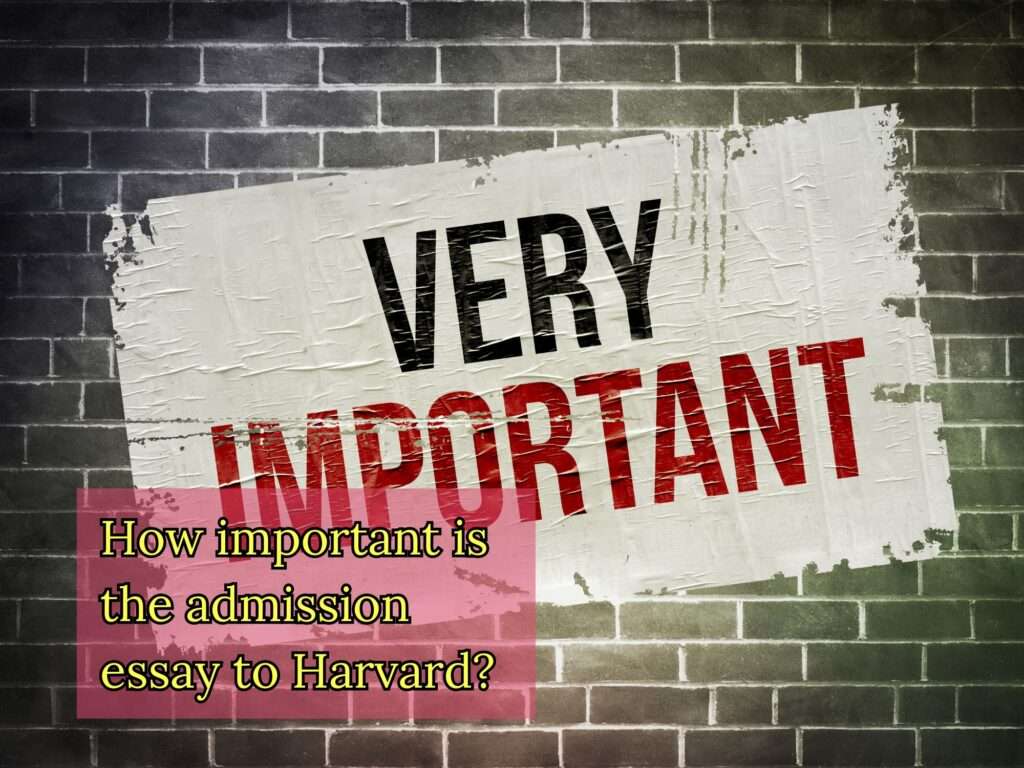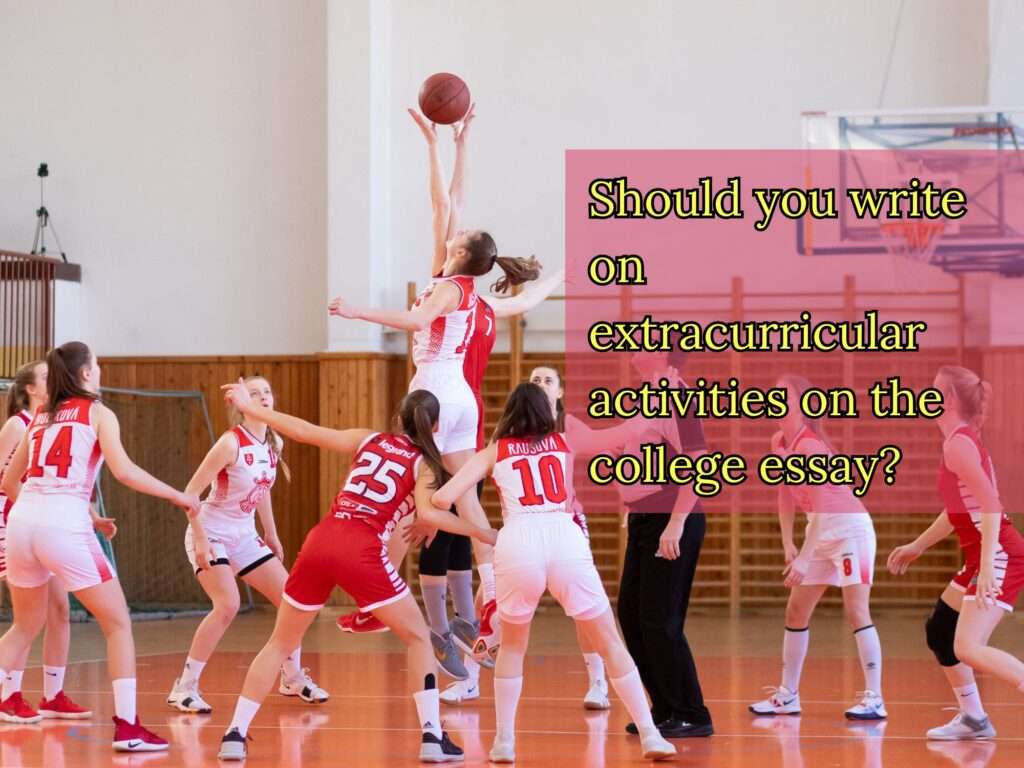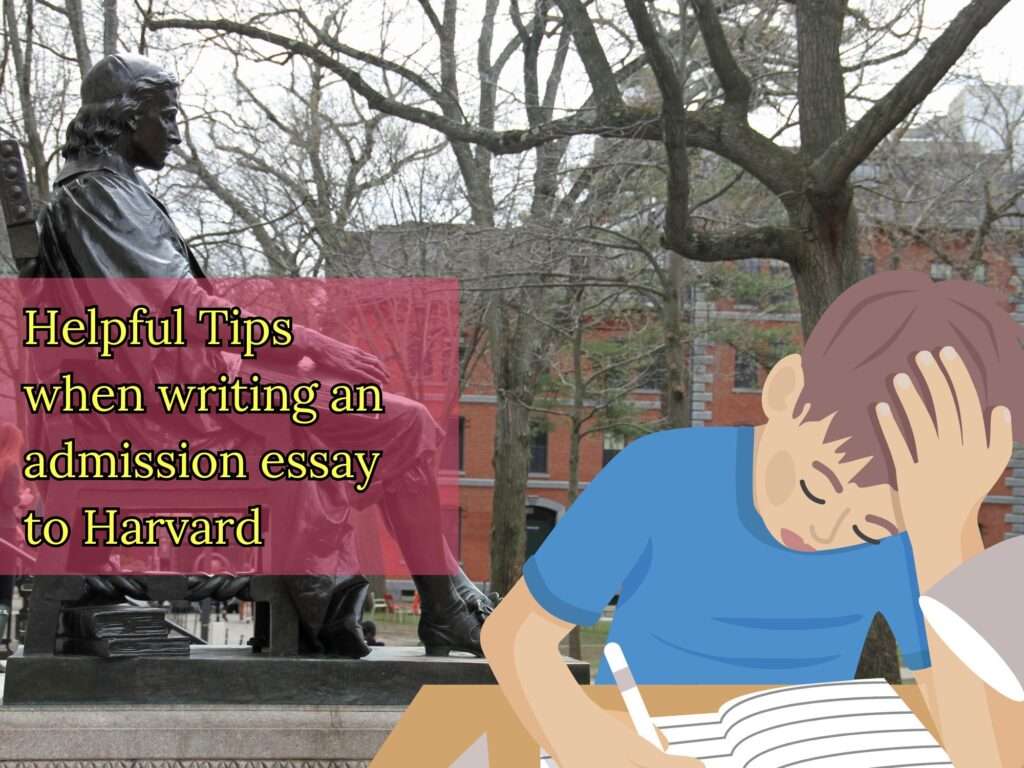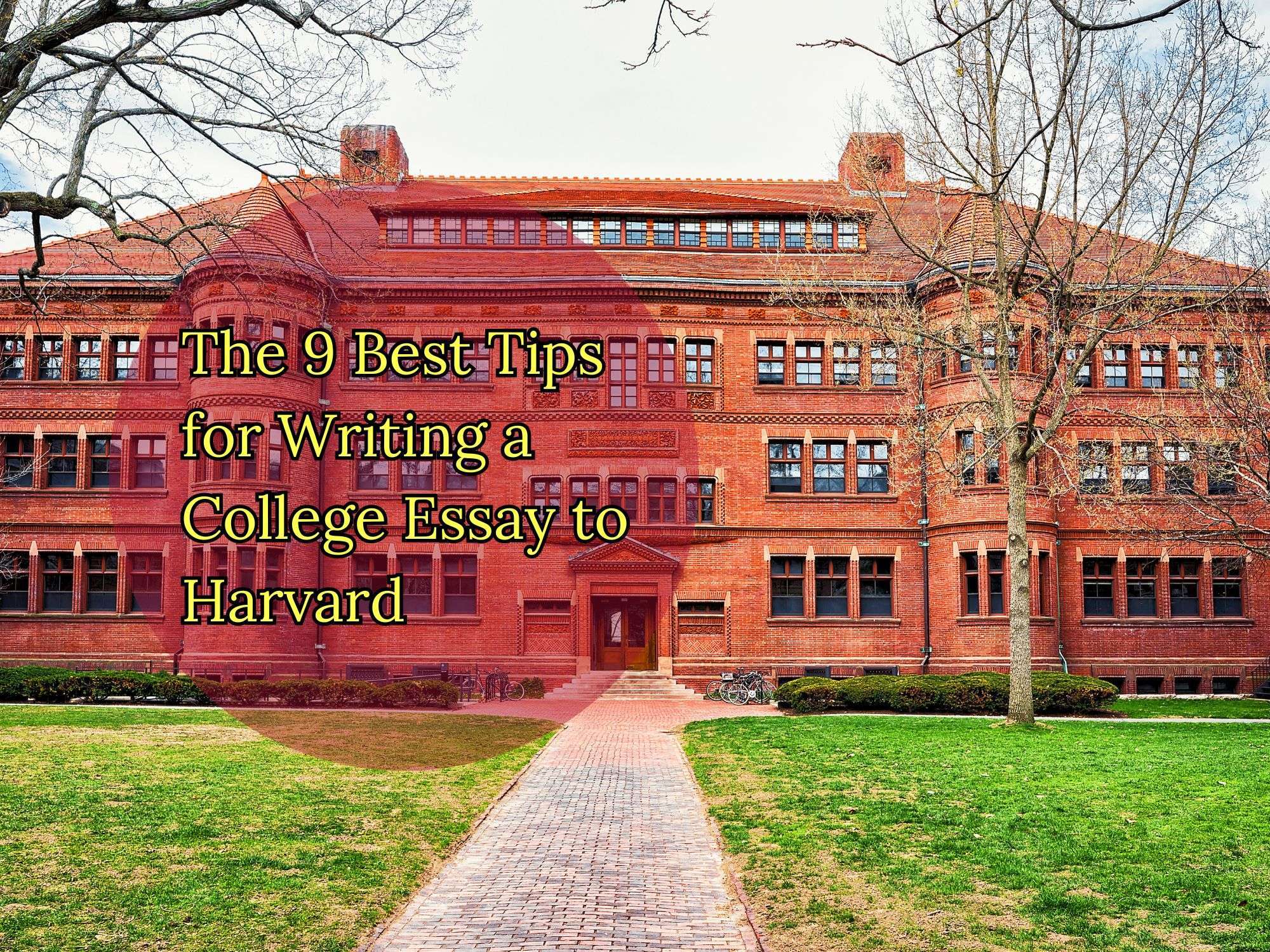Introduction
Hey future Harvard student! Welcome to our blog. Today, we’re going to share some top tips for applying to one of the best universities in the world—Harvard. Get ready to learn how to write a motivational letter that could help you get into this amazing school.
Just how important is the admissions essay to Harvard?

The essay sent out to Harvard allows admissions officers to easily choose the Best Top-performing candidates
The motivational letter sent to this Ivy League school holds a special place in its heart. It’s their key to finding the best and brightest students. How do they do this? They look at a student’s personal history and experiences as expressed by Harvard Kennedy School.
One way students can share their personal history is by talking about their past relationships. The relationships we’re referring to here aren’t about personal affection or mutual liking. Instead, we’re talking about relationships that provide academic benefits. These are connections that can enhance your learning and contribute to your educational success.
These relationships could be with classmates, teachers, or even non-academic staff. By sharing stories about these relationships, students can show this school who they really are.
Another way students can share their personal history is by talking about their life struggles. Everyone faces challenges, and these challenges shape us. By sharing these struggles, students can show this school how they’ve grown and what they’ve learned.
When you’re trying to write a good motivational letter to this learning institution, you need to remember a few things. Don’t just talk about your grades. They already know this from your resume. The idea here is to not make a list of your high school test performance. The “Show don’t tell” mantra heavily applies.
You can consider talking about other parts of your life that aren’t on your resume or expounding on your academic performance’s back story. This way, this Ivy school can see the whole you, not just your grades. This is a tip from the Tanabes.
If you’re trying to be the most academically serious candidate, you can talk about the story behind your grades as a means of expressing your personal history and experiences that are required. This can explain why you did well in school.
This way, the admissions officers can understand who you are. They can see how you achieve your goals. Are you someone who believes the end justifies the means? Or are you someone who sticks to their principles and doesn’t manipulate others? They want to know these things. So, when you talk about your academic performance, tell the story behind it.
If you don’t like the idea of talking about your academic story, personal relationships, or past struggles, you can still make your college motivational letter interesting. You can do this by sharing something that you found truly meaningful and that made you smile. Naturally, this story cannot be something unethical like your first sexual experience or the time you broke into a schoolyard. More about unethical topics and stories in a recent blog post.
Maybe you took a trip to Dubai, or you watched an inspiring movie with your family. These are things that don’t fit in other parts of your application, but they can make your motivational letter special.
By sharing these experiences, you can help the committee of this university understand you better. They can see your history and what you’ve been through. This can make them see you as a strong candidate. But remember, your motivational letter needs to be engaging and honest. Being clear and truthful is what can make you the best candidate.
Harvard can better understand the kind of person you are by creating Powerful essay prompts
This school’s motivational letter prompts are powerful because they’re diverse and inclusive. They give you, the college applicant, a choice. You can pick one of two prompts. You can choose the Common Application motivational letter category of prompts or the Coalition Application category of prompts as mentioned by Harvard College itself.
This Ivy University gives you three categories of motivational letter prompts, and you get to respond to two. This shows they’ve put a lot of thought into understanding a student’s personality. They don’t just want one motivational letter, they want six. So, they create three categories of prompts with more than seven prompts to capture a student’s personality as best as possible.
This shows us that the prompts are powerful. They help the school understand who they’re considering admitting.
Another fact that proves the power of this Ivy University’s motivational letter prompts is that when they can request you to provide more than three categories of motivational letter prompts, they only ask for two out of three categories, and you essentially have to write six motivational letters to apply to this university. This is by no means not enough and yet, they can still understand who you are. This shows how effective the prompts are.
This school’s supplement motivational letter prompt, which is the third category of motivational letter prompts provided, is like a magic ingredient. It captures the unique parts of your personality. If you’ve already talked about your personality in your Common Application, this type of motivational letter prompt lets you go deeper.
You can expand on what you’ve mentioned in the Common Application or the Coalition Application. This makes this specific type of motivational letter prompt very powerful. Its main goal is to understand, on a much deeper level, who is applying to this school. And it does this very well.
Does Harvard have supplemental essays in its application?

Harvard University usually asks for a supplement motivational letter in its application, so, yes, it does have this type of motivational letter in its application.
Understanding how the supplemental essay can contribute to Harvard Admission Success
This university’s supplement asks for five motivational letters from each applicant. Each motivational letter should be no more than 200 words, as sourced from the Harvard website. This might seem hard, but remember, it’s a chance to show this Ivy League school who you are. If you’re serious about getting in, use this chance to write the best motivational letters you can.
Your motivational letters of this type should be more specific than your main college motivational letter. In your case, that’s the Common Application motivational letter or the Coalition Application motivational letter. You’re applying to Harvard, so you want to give them as much considerably reasonable specific information as possible in your supplement motivational letters.
Harvard, like other top universities in the U.S., requires honesty in college motivational letters. The supplement motivational letters allow this school to assess your honesty. Honesty is the most important consideration in writing a motivational letter that gets you admitted.
When you’re asked to write several motivational letters, they should all be connected and not disjointed. This allows this university to not only get a cohesive feel to your entire application but to also see if you are lying about anything. Don’t mention something new in one motivational letter and then fail to include it in another relevant part of your application.
If the information you provide is consistent, then this school will conclude that you’re telling the truth. Most people, when lying, tend to experience fatigue. They forget the lie they were telling and have to invent another lie. They’re pushing you to the point where you experience fatigue so that they can see if you are a student worthy of admission.
How to write the Harvard University supplemental essay impactfully
Writing this university’s supplement motivational letter doesn’t have to be hard. Here at India’s BoardPlus, we’ve made it simple for you. This way, you won’t be overwhelmed by too much information on the internet.
Step 1. Brainstorm on the main idea and possible supporting topics for the main idea
Writing the supplement motivational letter for this school doesn’t have to be hard. Start by thinking about what you want to say. Think about your life, your schoolwork, and your hobbies. These are things this university wants to know about.
Pick one small part of your life to think critically about in any of the three categories we have just mentioned. It could be something that happened to you or something you’re interested in. The “Slice of your life” concept is one talked about in the 50 successful Ivy League Application book.
Think about how you’ll get along with people at this Ivy School. How will you talk to students, teachers, or visitors? Like Johns Hopkins, Harvard also wants to understand how well you will fit in their school.
Also, think about what you want to do in the future. How will going to this Ivy school help you reach your goals? Ask your friends and family what they think of your ideas once you are done brainstorming. This can help you make sure you haven’t forgotten anything important.
You could even visit this prestigious institution to learn more about it. Talking to the people there can help you understand the school better before committing to writing your motivational letter. This can help you write a better motivational letter.
Step 2. Create the First Draft of your Harvard supplement essay
After you finish brainstorming or making your mind map, it’s time to start writing your first draft for this school’s supplement motivational letter. The first thing to remember is to start with an interesting introduction. This will grab the reader’s attention and make them want to keep reading. To make your introduction really engaging, consider including a surprising or interesting short story as expressed by the Tanabes.
When you are writing the introduction, don’t forget your thesis statement. Your supplement motivational letter should be more specific than your Common Application or Coalition Application motivational letter. This is your chance to go deeper into the topics you covered in those motivational letters.
When you are writing your thesis statement, start with your main idea. Then add a personal story or opinion. Also, don’t forget about including a debatable point. It all boils down to a simple formula we have created for you, dear Harvard applicant, that reads “I Play Dodgeball”. “I” stands for the “Main Idea”, “Play” stands for “Personal story or opinion” and “Dodgeball” stands for “Debatable point”
You don’t need to create two anecdotes. You can include your short story in your thesis statement as your personal story.
It is important to remember to keep on refining your thesis as you write your motivational letter.
When you are writing, show how you interact with others. This will help the school see how you’ll get along with other students. You can do this by talking about your cultural identity. When done well, discussing your cultural identity will show that you understand and respect the school’s culture and values.
You don’t want to appear arrogant, just be a good human being. Nothing racist or sexist or anything that will give Harvard a reason to suspect that you aren’t a good person when communicating or generally interacting with people around you.
Don’t be scared to use the 8-point story arc to make your story engaging. This is a technique I used when I was making films as a college student. It helped me stay focused and create an engaging film.
The 8-point story arc is a way to structure your story. It has 8 steps or stages that should happen in a specific order. This will make your motivational letter engaging because it will have a natural yet captivating plot. You can learn more about the 8-point story arc at Scribophile’s Academy.
The 8-point story arc starts with the ‘stasis’. This is the normal life of the main character. Then something happens, called the ‘trigger’, that disturbs this normal life and leads to a ‘quest’ to solve the problem.
Next is the ‘surprise’. This is an unexpected event that the reader didn’t see coming. Then comes the ‘critical choice’. This is where the main character has to make a tough decision.
The ‘climax’ is next. This is the most tense part of the story. Then there’s the ‘reversal’. This is where things take a different turn and the reader is proven wrong.
Finally, there’s the ‘resolution’. This is where all loose ends are tied up and the reader feels satisfied with the outcome.
Using this 8-point story arc in your college motivational letter can make it more engaging. It allows the reader to learn something impactful about the narrative.
Step 3. Edit the First Draft
After you finish writing your first draft for this school’s supplement motivational letter, it’s time to edit. This is a very important step. Now, you’re focusing on how the motivational letter looks, not just what it says.
First, remember that this Ivy school’s supplement motivational letter has a 200-word limit. So, read your draft to make sure it’s not too long. Also, make sure you’ve explained your life story well. Don’t confuse the readers with too much detail.
Make sure your motivational letter is honest and doesn’t have any jargon. If it does have jargon, make sure it’s specific to your field of interest and that you allocate a few words to explain what certain words mean. The words being explained should be those that are difficult for a generalist to understand. The goal of the motivational letter is not to impress the committee with your incredible vocabulary but to show them who you are.
The last step is to have someone else proofread your work. They should be able to check things like diction and flow without overediting your motivational letter. You can ask friends on forums or reach out to us at India’s BoardPlus on our email info@indiaboardplus.com. Just make sure the person proofreading your work is someone you trust.
Also, make sure the person proofreading your work is older than you. They can check if your motivational letter is funny or if it generally has the right tone.
Remember, don’t have more than two people proofread your work. This could dilute the main message of your motivational letter.
The existence of Extracurricular activities in the Harvard essay

Do extracurricular activities present you as an All-rounded student qualified to receive a Harvard education?
Doing things outside of school, like sports or clubs, can show that you’re a student who likes to do different things. Schools like Harvard want to see this. They don’t just look at your resume and test scores. They also want to know what you like to do in your free time.
So, when you talk about the things you do outside of school, it helps them see you as a balanced student or what is otherwise called a well-rounded student. In addition to this, as expressed by Harvard’s student life page, This Ivy University is also able to see your skills and non-academic desires and how well they have developed over time. This way, they speculate on how well they will grow in their institution and on whether or not you are a good fit to the school’s extracurricular side.
To succeed in these activities, like tennis or football, you need to work as a team. This teamwork is something you can talk about in your college motivational letter. Talking about these activities shows that you’re not only smart but also good at making friends and working with others. By talking about these activities in your motivational letter, you can show universities what kind of student you’ll be in the sports department or any other department that isn’t academic in nature.
Can a college applicant still succeed in writing a college application essay to Harvard without any extracurriculars?
To be honest, writing a successful college motivational letter for this University might be easier when you don’t talk about this competitive topic. This is because making a motivational letter about this become engaging can be very hard, if not impossible.
It’s difficult to find a unique personal theme for your motivational letter that someone else won’t also have. You’re trying to make your motivational letter personal, but this can be tough for most college applicants talking about this topic, unless of course, you can find a very unique and relevant experience and lesson to talk about.
So, yes, you can apply to this school without any extracurricular activities and it is a much better approach than actually creating a motivational letter whose main idea is a certain extracurricular event.
What are some Helpful Tips when writing a college essay to Harvard?

Tip 1: Choose a topic that mirrors the kind of person you are
When you’re choosing a topic for your college motivational letter, pick one that shows who you are. Your motivational letter should be like a reflection in a pond, showing the committee the real you. Don’t just list good things about yourself, but also don’t make it seem like you’re perfect.
This Ivy school wants to see a motivational letter that mirrors who you are. If your topic doesn’t do this, you’re answering a different question and giving information that this Ivy School doesn’t want.
As expressed by Doctor Michele Hernandez, former assistant director of admissions at Dartmouth College, you don’t want to focus so much on the style of writing that you forget about the content. What you say is more important than how you say it.
When you are writing, only include things that define you. It’s about standing out, but not in a way that seems like you’re trying too hard to be unique. Focus on the things that make you, you. Don’t worry about what others are writing about. Just personalize your motivational letter by writing about what’s important to you.
It’s still important to stand out by sharing unique information, but personalizing your motivational letter is more valuable. Some topics, such as the ones outlined in a previous blog post, are very hard to write about in a personal way, so we recommend avoiding them.
Tip 2: Highlight your intellectual experiences in high school and align them with your career aspirations
It’s not required, but it can be very helpful to talk about your intellectual experiences in high school and how they relate to the career you want. One of the most important parts of your application is your ability to understand and apply things, because that’s what you’ll use to build your career.
Harvard would be very interested to know about your experiences and what led to your grades. Tell them your story, your struggles, and your challenges. Let them learn from your experiences so they can see your determination, resilience, and dedication to building a successful life.
Also, align this with your dreams and goals, and the vision of the career you see for yourself. Where do you want to work? What job do you want to have? Or what business do you want to start? Discuss these things while still staying within the word limit.
Tip 3: Create a powerful thesis statement coupled with its topic sentences
A strong thesis statement can really help your college motivational letter for this Ivy University. The school is very competitive, so a thesis statement can make your motivational letter look professional. When you are writing, you want to connect your thesis statement with your topic sentences. These sentences give proof to the main idea in your thesis statement.
Remember to follow the “I Play Dodgeball” formula in the creation of a thesis statement.
Make sure your thesis statement is at the end of the introduction paragraph. This will give structure to your motivational letter and help the committee at this dream school understand your motivational letter before they read it in detail.
Tip 4: Understand that Harvard has long recognized the importance of specific examples in college essays
Top schools, especially Ivy League schools, really value specific examples in college motivational letters. When a student gives specific examples, it creates a clear picture in the minds of the committee as expressed by Eva Ostrum, former assistant director of undergraduate admissions at Yale.
They can imagine the events you’re describing and the people you’re talking about. They can even get a sense of how you felt in those moments. More importantly, they can imagine what it’s like to have a conversation with you. This can make them want to get to know you more. This desire could be what gets you accepted into this University of your dreams.
Tip 5: DO NOT LIE! It will lead to failure in your college essay
One of the most important parts of a successful college motivational letter for any Ivy League or any other super competitive university or college is honesty. To avoid the temptation of lying in your motivational letter, choose a topic that means a lot to you. You wouldn’t want to lie about something that’s important to you.
It’s like being Captain America, an honorable superhero. He believed in doing what was right. So, find a topic that makes you feel honorable. If you don’t have any reason to be dishonest, you can create a powerful motivational letter. This will let the committee see who you really are.
Tip 6: Read your essay once you are done writing to check for mistakes
Proofreading is a very important part of writing a college motivational letter for Harvard. Just like we discussed when talking about supplement motivational letters, proofreading lets you see if your motivational letter is the best it can be.
The things we talked about for proofreading supplement motivational letters apply here too. The most important things to remember are to make sure your motivational letter has the right tone, tells the truth about who you are, and has good word choice and flow. Also, try not to over-edit your motivational letter.
For more information on what we just talked about, you can check out our tips on editing supplement motivational letters. There, you’ll find more information on proofreading your motivational letter to check for mistakes.
Tip 7: Consider implementing Literary Devices to create a perfect essay for Harvard
While using literary devices might seem to go against our previous advice of focusing on content, it can still be helpful. If a student focuses on content and also uses literary devices like onomatopoeia, metaphors, and analogies, it can make their motivational letter more enjoyable to read.
But remember, the content is the most important part. Once you have the content, then you can think about using literary devices. These devices can make your motivational letter more colorful and interesting to read.
Even though this isn’t as important as other pieces of advice when writing a college motivational letter, it can improve the reading experience for the people who will be reading your motivational letter.
Tip 8: Treat the college essay like you would a job application and consider briefly describing an internship employment experience
Some successful college applicants have treated their college motivational letters like job applications. This made their motivational letters relevant to the theme of career development because they described their internship experiences and what they learned from them.
They talked about the lengths they went to get internships at well-known organizations. From these stories, the admissions officers could see the effort the applicants put into building successful careers.
This is what you get when you treat your college motivational letter like a job application. You don’t want to make it too much like a job application, but you can borrow some elements from it. For example, you can discuss your work experience and the story behind it, like in the case of an internship.
Tip 9: Remember, challenges build conflict and conflict makes a good memorable story
Remember, conflict is a key part of a good story. If you are writing a college motivational letter for this Ivy University, think about including some conflict. This could be challenges you’ve faced.
You can talk about your unique experiences and the lessons you learned from these challenges. Then, you can talk about how you solved these problems. Just like in a movie, people are interested in seeing how characters overcome challenges. Your college motivational letter can be memorable and engaging in the same way.
How does the Harvard Personal Statement essay differentiate from the Common App?
This type of application motivational letter for this school goes into detail about a part of the applicant’s personality that is important to them as pointed out by Harvard T.H. Chan. They can talk about what inspires them. They can also discuss their past, their plans, or life lessons they’ve learned from an activity. This type of motivation letter helps the Ivy school see them as a great candidate for their program.
Whereas in the Common Application motivational letter, students submit it to multiple colleges, including Harvard. But remember, the Common Application is not mandatory. As we mentioned before, you can also choose to create a Coalition Application. This is another type of application that this institution is comfortable receiving from applicants.
The importance of Anecdotes in the Harvard personal narrative or statement
These short personal stories are very important in this type of motivational letter for this Ivy League school. They are especially useful at the beginning of the motivational letter. They can grab the reader’s attention and make them want to keep reading as expressed by Dr. Michele Hernandez.
Anecdotes can also be used in the thesis, or main idea, of the motivational letter. This makes them even more powerful. When you use them correctly, they can leave a strong impression on the people reading your motivational letter.
Here is a helpful analysis India’s BoardPlus has done on a college essay sent out to Harvard
Let’s explore an admissions motivational letter. This motivational letter was written by a student who wishes to remain anonymous. The motivational letter is titled ‘A Special Performance’ and it was submitted to Harvard. If you’re interested in reading this motivational letter to understand the context of our discussion, you can find it in a book. The book is called ‘50 Successful Ivy League Applications’. It’s available for purchase on Amazon. This book can serve as a helpful reference for the material we’re discussing.
Let’s start. The author of this motivational letter begins their first paragraph in a unique way. We can feel her anticipation and eagerness to perform her act. This approach helps to capture and hold the reader’s attention, which is an excellent strategy for a college admissions motivational letter.
If you recall, we previously discussed the importance of crafting an engaging introduction. A well-written first paragraph can capture the reader’s interest. Once you’ve done this, there’s a good chance that you’ll be able to persuade them to continue reading the rest of the motivational letter. This is because you’ve piqued their interest right from the start of your motivational letter.
In the second paragraph, we see the author adhering to the ‘show, not tell’ mantra, which is crucial in amotivational letter sent to this Ivy League University. The author states that her love for performance stemmed from her appreciation of music as a child. She then provides details that confirm this, such as having an old record player and a best friend with whom she created a homemade duet.
While the motivational letter could have been strengthened if the author had provided specific details about this friend, not doing so keeps the focus on the author and helps establish the theme of her story. We’ve discussed the importance of providing specific details, as they help create a vivid image of the events being described in the motivational letter. This image then plays out in the minds of the admissions committee reading the motivational letter.
The author also presents the admissions officers at the Ivy School with highly valued traits for students seeking admission, such as tenacity and ambition, coupled with her creative and collaborative personality. Instead of directly stating that music was very valuable to her, she implies this by describing how time seemed to pass unknowingly when she was engrossed in her music.
From a cultural perspective, the author’s upbringing in China pushed her out of her comfort zone and guided her to be resilient in her pursuit of creating music, despite her inability to join a choir or play a grand piano.
The third paragraph could have been improved if the author had spared some words in her motivational letter to describe the meaning of industry-specific terms to her readers. Words such as ‘chords’, ‘arpeggios’, and ‘trills’ should have been defined.
Remember, admissions officers, especially those at this specific University, have a general understanding of various fields and could therefore fail to understand these specific terms used in a field such as music.
The author helps improve the engagement of the motivational letter by likening her repertoire to something delicious which is obviously a metaphor.
The author wearing her mother’s dress to sing on stage is symbolic of her own cultural heritage as a person brought up in China. It is also symbolic of her mother, who is mentioned as someone who helped the author sleep more easily as a child. The description of the stage as empty and illuminated by pale blue light creates a mysterious and suspenseful mood in the motivational letter, allowing the readers to look forward to the author’s performance or what will take place next.
Conclusion
As we wrap up, remember the key strategies we’ve shared: choosing a topic that mirrors the kind of person that you are, highlighting intellectual experiences, creating a thesis with its topic sentences, using specific examples, the importance of being honest, proofreading your motivational letter, using literary devices, approaching the essay like a job application and using conflict to build engagement.
Armed with these insights, you’re one step closer to turning your Harvard dream into reality. Don’t hesitate to reach out for more advice or to share your progress—we’re cheering for you every step of the way. Here’s to your success and the exciting journey ahead!
FAQ
What does Harvard look for in a college essay?
Harvard, when evaluating a college motivational letter, looks for the following key elements:
- Personal Reflection
- Specific Examples
- Honesty
- Proper Preparation
- Engagement
How to write the Perfect Harvard essay?
Writing a college motivational letter for Harvard isn’t about crafting the perfect piece. It’s about creating a motivational letter that lets the admissions committee at this University truly see who you are. This should be done in a genuine and realistic way. If you can accomplish this, you’ll have written a powerful college motivational letter for Harvard.
What GPA is required for Harvard?
The Grade Point Average (GPA) you need to have is 4.0 or even higher. This means you need to get excellent grades in all your subjects.
What is the best font for a Harvard essay?
When you’re preparing an application motivational letter, which is essentially an academic paper of sorts, it’s important to consider the font you use. Times New Roman, for instance, is a great choice. In fact, Times New Roman is often considered the best font for academic papers. So, whenever you’re writing a motivational letter for college, especially one intended for admission, using Times New Roman can make your work look professional and easy to read.
References and Resources
The Importance of the Admissions Essay to Harvard
Tanabes – 50 Successful Ivy League Application Essays Book
The Presence of Supplement Essays in the Application of Harvard
Extracurriculars in the essay sent out to Harvard
Helpful Tips when writing an essay to Harvard
Harvard Office of Undergraduate Research and Fellowships

